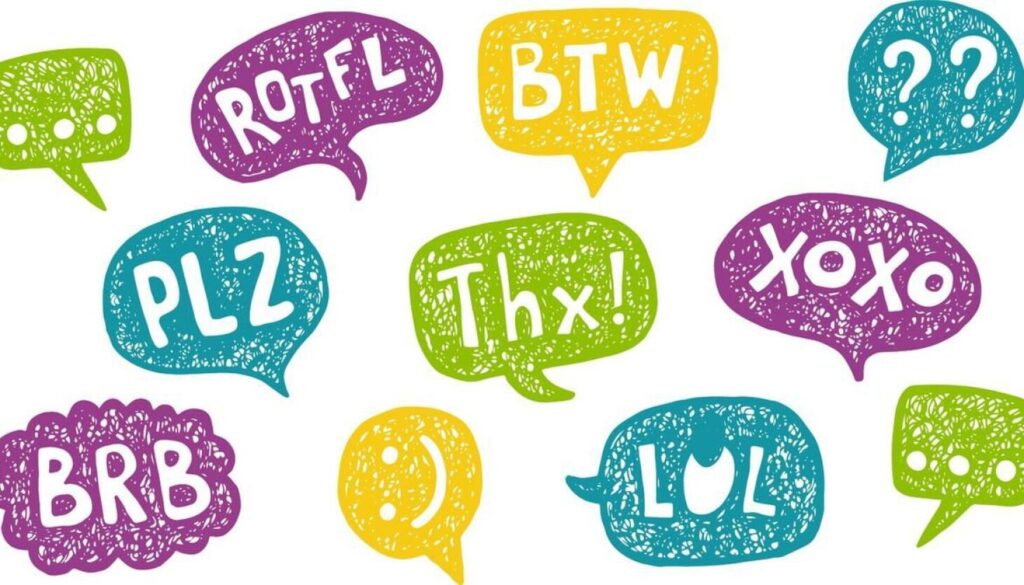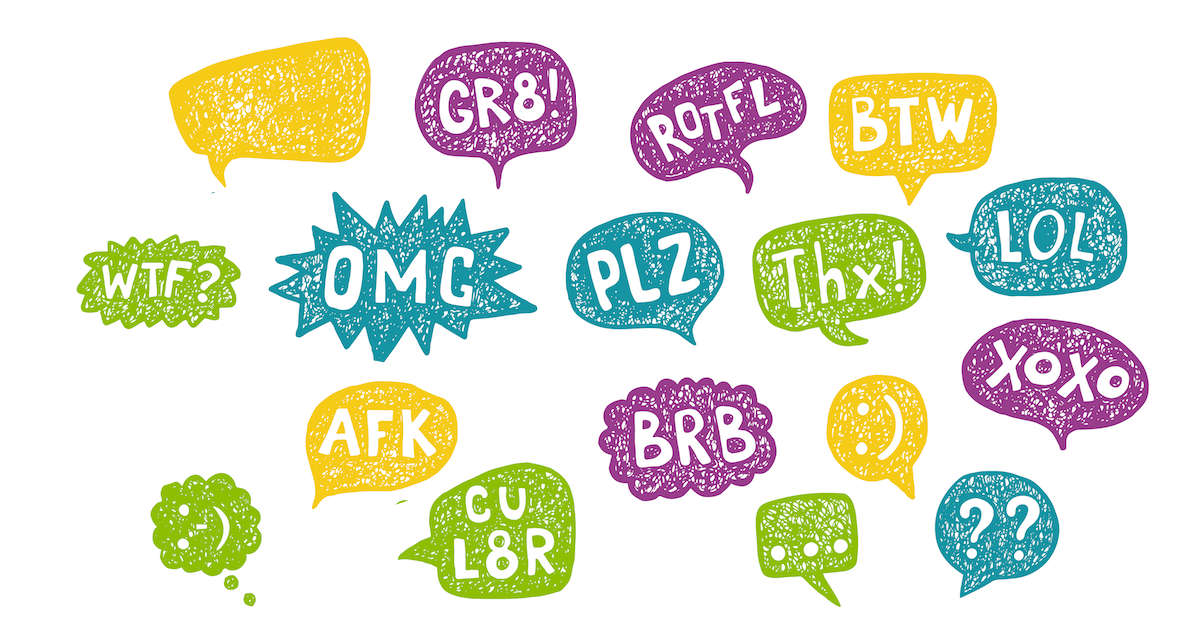The Symbolism of Abbreviation Dream Meaning
Types of Abbreviations in Dreams
Dreams have long been a subject of interest among people from various cultures, with many interpreting them as signs or messages from above. While the interpretation of dreams is not an exact science, certain symbols and abbreviations within them can carry specific meanings.
There are several types of abbreviations that can appear in dreams, each with its own unique significance. One type of abbreviation is the numerical representation, where numbers are used to signify different events or outcomes in life. For instance, seeing the number 111 repeatedly in a dream may indicate new beginnings, spiritual awakening, or a need to pay attention to one’s intuition.
Another type of abbreviation found in dreams is the use of letters or initials to represent various entities, concepts, or themes. Seeing the initials ‘L’ or ‘S’ together could signify love and relationships, while seeing them separately might indicate different aspects of these themes. Similarly, encountering the acronym ‘ASAP’ in a dream can symbolize urgency and the need for prompt action.
Additionally, certain abbreviations within dreams may be related to personal growth, spiritual development, or career advancement. Seeing ‘MBA’ in a dream could signify one’s desire for knowledge, skills, or professional growth, while encountering ‘CEO’ might indicate leadership qualities or ambitions.
Dreams can also feature acronyms that serve as metaphors for emotions or psychological states. For instance, seeing the acronym ‘ABC’ in a dream may symbolize basic needs or fundamental aspects of life. Encountering ‘I Love You’ (ILY) could represent affection and love towards oneself or others.
When interpreting abbreviations in dreams, it’s essential to consider their context within the larger framework of the dream narrative. This includes factors such as personal associations, emotional resonance, and any relevant memories or experiences that may be linked to the abbreviation.
The meaning of abbreviations in dreams is often subjective and can vary significantly from person to person. While some abbreviations might have universally accepted meanings, others may hold unique significance for an individual based on their personal experiences, values, and emotions.
Ultimately, deciphering the meaning of abbreviations within dreams requires a thoughtful and empathetic approach. By carefully examining the context, symbols, and themes present in the dream, one can gain deeper insights into their subconscious thoughts, desires, and motivations.
Cut Short: Feeling Overwhelmed
Cut Short: Feeling Overwhelmed Abbreviation Dream Meaning – A Sign From Above is a phrase that has gained attention on social media and other online platforms, with many individuals sharing their own interpretations and experiences related to it.
The term “cut short” refers to the feeling of being overwhelmed or interrupted, often unexpectedly, by events or situations beyond one’s control. This can manifest in various aspects of life, such as work, relationships, health, or personal goals.
When considering dream meanings related to being cut short, it is essential to look at the context and emotions experienced during the dream. For example, if you dreamt that your journey or path was suddenly interrupted or diverted, this could symbolize feelings of being overwhelmed by responsibilities or challenges in waking life.
In some instances, feeling cut short can be associated with a sense of loss or missed opportunities. This might manifest as regret or dissatisfaction related to unfulfilled potential or unresolved issues. Alternatively, it could signify the need for self-reflection and reassessment of priorities or goals.
When interpreting dreams involving being cut short, it is crucial to consider the specific emotions experienced during the dream, such as fear, anxiety, or a sense of relief. These emotions can provide insights into the underlying concerns or issues that may be contributing to feelings of overwhelm in waking life.
The abbreviation “DREAM” might represent different things for various individuals, but it could symbolize aspirations, desires, or the subconscious mind’s ability to process and communicate important messages. Seeing dreams as a form of communication from above suggests that they hold valuable insights into one’s inner world and potential areas for growth.
By exploring the symbolism and emotions involved in cut short dreams, individuals can develop a deeper understanding of their own needs, desires, and limitations. This awareness enables them to make informed choices and navigate challenging situations with greater confidence and resilience.
In this context, feeling overwhelmed or being “cut short” can be seen as an opportunity for growth, transformation, and self-awareness, rather than solely as a negative experience. By embracing the lessons and insights offered by such dreams, individuals can cultivate a stronger connection to their intuition and inner guidance, ultimately leading to greater fulfillment and purpose in life.
Acronyms and Initials: New Beginnings
Inspired by Technology and Innovation
Dreams have been a source of fascination for humanity throughout history, with many people seeking to understand their hidden meanings and symbolism. The dream “Inspired by Technology and Innovation Abbreviation” may seem like a complex and abstract concept, but it can be broken down into its various components to uncover its deeper significance.
The abbreviation in question could represent several different things, such as the acronym for a company or organization related to technology, innovation, or creativity. It could also symbolize the desire for inspiration and guidance from above, as represented by the phrase “A Sign From Above.”
From a psychological perspective, dreams often serve as a way for our unconscious mind to communicate with our conscious self. By analyzing the components of this dream, we may uncover underlying fears, desires, or motivations that need attention in our waking lives.
In terms of personal growth and spiritual development, the dream “Inspired by Technology and Innovation Abbreviation” could represent a call to explore new ideas and perspectives. It may be a reminder to stay open-minded, adaptable, and receptive to innovative solutions and technologies that can improve our lives.
Alternatively, the dream could be seen as a manifestation of the collective unconscious, a shared reservoir of archetypes and experiences common to all humans. In this sense, it may represent a universal desire for connection with something greater than ourselves, whether that is a higher power or a sense of community and belonging.
In terms of the specific abbreviation in question, it could be seen as a representation of the individual’s own unique creative potential. It may symbolize the need to tap into one’s inner sources of inspiration and innovation, rather than relying on external sources or authorities.
Ultimately, the interpretation of this dream will depend on the individual’s personal experiences, values, and perspectives. By examining its various components and symbolism, we can gain a deeper understanding of our own desires, fears, and motivations, as well as the universal human search for meaning and connection.
The Psychology Behind Abbreviation Dream Meaning
When interpreting the meaning behind an abbreviation dream, it’s essential to consider the symbolic significance of abbreviations themselves. An abbreviation, by definition, represents a shortened form or a condensed version of something more extensive.
This psychological concept is closely tied to the idea of cognitive compression, which refers to the tendency for our brains to condense complex information into simpler forms to facilitate processing and memory consolidation. In dreams, this cognitive process may manifest as an abbreviation symbolizing a reduction or simplification of emotions, thoughts, or experiences.
On a deeper level, abbreviations can be seen as emblematic representations of the human psyche’s innate desire for concision and efficiency. This longing for brevity can stem from our natural inclination to prioritize and focus on the most essential aspects of any given situation or relationship.
In dream analysis, the appearance of an abbreviation often prompts a re-examination of one’s waking life and relationships, encouraging introspection into areas that may have become overly complex or convoluted. This act of reflection serves as a means to rediscover clear boundaries, streamline priorities, and regain control over aspects of life that may feel overwhelming.
The presence of an abbreviation in dreams can also serve as a signal for the dreamer to acknowledge their own limitations and recognize areas where they require further education or skill-building. In other words, abbreviations can symbolize incomplete knowledge, highlighting the need for personal growth and self-improvement.
In some cases, an abbreviation in dreams may signify a yearning for more direct communication with others or with oneself. This longing for simplicity and clarity in expression can stem from unresolved conflicts or misunderstandings that have led to linguistic complexity in relationships.
Ultimately, deciphering the meaning behind an abbreviation dream depends on the context of the dream itself as well as personal associations and experiences. By paying attention to emotions, symbols, and themes present in the dream, one can begin to unravel the underlying messages and tap into their own unconscious mind.
The interpretation of abbreviation dreams may also vary depending on cultural background and individual perspectives. Nevertheless, this symbol often prompts an exploration of how our psyche attempts to simplify complex issues, relationships, or personal challenges.
The Fragmented Self
The Fragmented Self is often associated with feelings of disconnection, isolation, and fragmentation within an individual’s personality. This can manifest as a sense of being lost or disconnected from one’s true self, emotions, or others.
In the context of dreams, The Fragmented Self Abbreviation can symbolize a longing for wholeness, unity, or integration. It may suggest that the dreamer is searching for ways to reconnect with their inner self, emotions, or others, and is seeking guidance on how to integrate their fragmented aspects.
A dream featuring this abbreviation may be a sign from above, indicating that the dreamer needs to take a step back and re-evaluate their priorities, values, and relationships. It could be an invitation to explore their subconscious mind, confront their fears, and work towards healing and integration.
On a deeper level, The Fragmented Self Abbreviation in a dream can represent the dreamer’s desire for spiritual growth, enlightenment, or higher states of consciousness. It may suggest that they are being called to explore their spiritual nature, connect with their inner self, and tap into the infinite wisdom within.
In terms of personal growth and development, this abbreviation can serve as a reminder to focus on emotional healing, self-reflection, and introspection. It encourages the dreamer to develop a greater sense of self-awareness, compassion, and empathy for themselves and others.
The Fragmented Self Abbreviation in a dream may also be related to unresolved issues from the past, unconscious fears or anxieties, or unfulfilled desires. It could be an indication that the dreamer needs to address these underlying concerns and work towards releasing emotional baggage and finding closure.
In summary, The Fragmented Self Abbreviation in a dream is often associated with feelings of disconnection, isolation, and fragmentation within an individual’s personality. It can symbolize a longing for wholeness, unity, or integration and may be a sign from above indicating the need to take a step back, re-evaluate priorities, and work towards healing and integration.
Modes of Communication in Dreams
Dreams are a universal human experience that has been observed across cultures and throughout history. Despite their widespread occurrence, dreams remain a mystery to many people. However, research suggests that dreams can be a way for our unconscious mind to communicate with us, providing insight into our thoughts, emotions, and experiences.
One of the most fascinating aspects of dreams is the variety of modes of communication used by our subconscious mind. While we typically associate waking life with verbal language, dreams often employ a range of other methods to convey meaning and symbolism.
The first mode of communication in dreams is symbolic representation. In this mode, objects, people, and events from our waking lives are reimagined as symbols or metaphors that hold deeper significance. For example, a dream about flying may symbolize freedom, empowerment, or a desire to transcend one’s current circumstances.
Another mode of communication in dreams is visual representation. This involves the creation of vivid images and scenarios that convey meaning through sight rather than sound. Visual representations can be particularly effective at communicating complex emotions and ideas, such as a dream about a labyrinth representing feelings of confusion or disorientation.
Dreams also employ auditory modes of communication, such as hearing voices, sounds, or music. These auditory cues can provide insight into our emotional state, relationships, or unresolved issues. For instance, hearing a loved one’s voice in a dream may symbolize nostalgia, longing, or a sense of comfort and security.
Furthermore, dreams use somatic modes of communication, which involve physical sensations and bodily experiences. These sensations can range from pleasant (e.g., feeling warmth or relaxation) to unpleasant (e.g., experiencing fear or anxiety). Somatic communications often relate to our emotional state, such as a dream about being paralyzed indicating feelings of immobilization or powerlessness.
Additionally, dreams incorporate cognitive modes of communication, which involve logical reasoning and problem-solving. These cognitive processes can be observed in dreams that feature puzzles, riddles, or brain teasers. Cognitive communications often represent our attempt to make sense of complex issues or situations in waking life.
Lastly, dreams employ emotive modes of communication, which convey emotions through expressions of joy, sadness, anger, or fear. Emotive communications can be intense and vivid, making us more aware of our emotional state and the need for self-expression or catharsis.
In conclusion, dreams use a range of modes of communication to convey meaning and symbolism, including symbolic representation, visual representation, auditory representation, somatic representation, cognitive representation, and emotive representation. By paying attention to these different modes, we can gain a deeper understanding of ourselves and the world around us, and unlock the hidden messages and wisdom contained within our dreams.
Is Your Subconscious Trying to Tell You Something?
The concept of the subconscious trying to tell you something is rooted in the idea that our minds are constantly processing information, both consciously and unconsciously. While we may not be aware of it, our subconscious mind is always working behind the scenes, filtering out irrelevant data and making connections between seemingly unrelated ideas.
One way that our subconscious can try to tell us something is through dreams. Dreams are a common source of fascination and intrigue, with many people believing that they hold hidden meaning or symbolism. The idea that dreams can be a sign from above is an ancient one, with many cultures believing in the spiritual significance of dreams.
When it comes to deciphering dream meanings, there are various approaches and theories. Some believe that dreams are purely personal and symbolic, reflecting our inner thoughts and desires. Others see dreams as messages from beyond, guiding us towards a higher purpose or destiny.
Consider the following scenario: You’ve been having recurring dreams about being lost in a maze or forest, feeling anxious and disoriented. At first, it may seem like just a reflection of your waking worries and anxieties. However, what if this dream is actually trying to tell you something more profound?
Could this dream be hinting at the need to explore new paths or options in your life? Are you feeling stuck or uncertain about which direction to take? The subconscious may be nudging you towards self-reflection and introspection, encouraging you to re-evaluate your priorities and goals.
Another way that our subconscious can communicate with us is through intuition. Many people report experiencing gut feelings or hunches about specific situations or decisions. While we may not consciously understand why we feel a certain way, our subconscious mind may be picking up on subtle cues and patterns that indicate a particular course of action.
For instance, you might find yourself feeling uneasy or resistant to a particular decision, even though logically it seems like the right thing to do. This could be your subconscious warning you about potential pitfalls or consequences that aren’t immediately apparent.
In both cases – dreams and intuition – our subconscious is trying to convey information or guide us towards a particular outcome. By paying attention to these subtle cues and messages, we can gain a deeper understanding of ourselves and the world around us.
So, what does it mean when your subconscious is trying to tell you something? It could be a sign from above, guiding you towards a higher purpose or destiny. Or it might be simply a reflection of your own inner thoughts and desires. Either way, by tuning in to our subconscious and listening to its whispers, we can tap into the deepest wisdom of our own minds.

The Interpretation of Abbreviation Dreams
Symbols and Archetypes
Symbols and archetypes have been used across cultures and time to convey complex ideas, emotions, and experiences. They serve as a shared language, allowing individuals to communicate and connect with one another on a deeper level. In the context of dreams, symbols and archetypes can hold significant meaning, offering insights into the unconscious mind and spiritual realm.
Symbols are objects or images that represent abstract ideas, concepts, or feelings. They can be concrete or abstract, visual or auditory, and often carry multiple layers of meaning. In dreams, symbols can appear in various forms, such as animals, numbers, colors, or objects, and may evoke emotions, memories, or experiences from the past.
Archetypes, on the other hand, are universal patterns or images that recur across cultures and time. They represent fundamental human experiences, desires, and fears, and can be seen as a shared collective unconscious. Archetypes are often depicted through myths, legends, and stories, serving as a symbolic language to convey deeper truths.
When we encounter symbols and archetypes in our dreams, it’s essential to consider the context in which they appear. The setting, emotions, and actions within the dream can influence the meaning of the symbol or archetype. For instance, a snake appearing in a peaceful garden may have different connotations than a snake emerging from darkness.
Some common symbols and archetypes in dreams include:
- The Self/Higher Self: Represented by symbols like the sun, the moon, or a shining light, this archetype signifies inner guidance, intuition, and spiritual connection.
- The Mother/Feminine Energy: Associated with nurturing images like a mother, a tree, or flowers, this archetype represents receptivity, compassion, and fertility.
- The Father/Masculine Energy: Depicted through symbols like a mountain, a strong man, or a dragon, this archetype embodies authority, protection, and action.
In many cultures, dreams are believed to be messages from the spirit world, offering guidance, wisdom, and healing. When we interpret symbols and archetypes in our dreams, we tap into this collective unconscious, accessing ancient wisdom and spiritual insights. By exploring these symbolic languages, we can gain a deeper understanding of ourselves, others, and the world around us.
Ultimately, symbols and archetypes in dreams serve as a reminder that there’s more to reality than what we can see and experience in our waking lives. They invite us to explore the mysteries of the human psyche and connect with the divine, offering a glimpse into a deeper truth that transcends the physical world.
By embracing symbols and archetypes in our dreams, we can cultivate a sense of awe, wonder, and curiosity about the mysterious and often hidden aspects of life. We may find ourselves more open to the unknown, more receptive to guidance from within, and more connected to the world around us.
The Significance of Specific Letters or Words
The world of dream interpretation is a vast and complex one, with countless symbols, images, and themes vying for our attention. Amidst this sea of possibilities, there exist certain letters or words that hold significant meaning, often imbued with a deeper sense of importance and significance.
One such phenomenon is the use of specific letters or word abbreviations in dreams, which can be seen as a sign from above, offering guidance, wisdom, and insight into our waking lives. These symbols have been observed to possess a profound impact on individuals, often revealing hidden truths and unseen patterns that shape their reality.
The significance of these letters or words is rooted in their ability to transcend the realm of the mundane, speaking directly to the soul and awakening higher states of consciousness. When encountered in dreams, they serve as a catalyst for personal growth, urging the individual to explore new perspectives and tap into their inner potential.
Consider the case of A, often associated with spiritual awakening and enlightenment. Its presence in a dream can signal that the time has come to break free from restrictive patterns and explore the depths of one’s own consciousness. Similarly, B may represent balance and harmony, reminding the dreamer to find equilibrium within themselves and their surroundings.
The letter C is sometimes linked to creativity and inspiration, urging the individual to tap into their inner wellspring of artistic expression. Conversely, its absence or distortion in a dream may signal a need to reconnect with one’s own creative spark and channel it into meaningful pursuits.
Often, these letters or words appear as abbreviations or acronyms within dreams, carrying multiple layers of meaning depending on the context and associations of each individual. By paying attention to these symbolic representations, we can gain insight into our lives, uncovering hidden patterns and untapped potential waiting to be realized.
When seen as a sign from above, these letters or words serve as a reminder that we are not alone in this journey called life. We are guided by unseen forces and higher realms of consciousness, urging us toward growth, wisdom, and self-discovery. By listening to the whispers of our dreams, we can tap into the profound significance hidden within these symbolic representations.
A Closer Look at Common Abbreviations in Dreams
Dreams are a universal language that can be interpreted in various ways, depending on the individual’s experiences and emotions. Among the many symbols and images that appear in dreams, abbreviations play a significant role. Abbreviations in dreams can serve as a sign from above, guiding us towards hidden meanings and underlying messages.
When we dream about abbreviations, it’s essential to consider their context within the dream narrative. The abbreviation itself may represent an idea or concept that is condensed into a single letter or symbol. This condensation can reveal deeper insights into our waking lives and emotions.
A common abbreviation seen in dreams is “ID,” which often represents identity or self-image. In dreams, seeing ID cards or being asked to present ID can indicate feelings of insecurity or confusion about one’s role in life. It may also symbolize the need for personal validation or a desire to be recognized by others.
Another popular abbreviation in dreams is “GPS.” Dreams featuring GPS devices often point to difficulties with direction or navigation in our waking lives. This can manifest as feelings of lostness, confusion, or uncertainty about where we’re headed in life. The dream may also suggest the need for guidance or reassurance from external sources.
The abbreviation “ASAP” (as soon as possible) often appears in dreams as a representation of urgency or impatience. This can indicate that we’re feeling rushed or pressured to complete tasks and achieve goals. Alternatively, it may symbolize an inner desire to accelerate progress or speed up personal growth.
When interpreting abbreviations in dreams, consider the emotional tone and context within which they appear. Are you feeling anxious or stressed about an abbreviation-related issue? Or are you experiencing a sense of relief or accomplishment when seeing certain abbreviations in your dream? Understanding these nuances can provide valuable insights into your subconscious mind.
Remember that abbreviations in dreams serve as personal symbols, unique to each individual’s experiences and emotions. By examining the specific meanings associated with different abbreviations, we can unlock deeper understanding of ourselves and our place within the world.
In conclusion, abbreviations in dreams offer a fascinating glimpse into our collective unconsciousness. By deciphering their meanings, we can tap into hidden patterns and symbolism that guide us towards personal growth and self-awareness. So next time you find yourself surrounded by abbreviations in your dream world, take a closer look – you might just discover a valuable message from above!
Connecting the Dots: Understanding Your Dream
Certain dream abbreviations may hold special significance, often representing aspects of our subconscious thoughts, desires, and even spiritual guidance. Understanding these abbreviations can be a powerful tool for self-discovery and personal growth.
To begin deciphering the meaning behind your dream abbreviation, consider the following steps:
Record and reflect on your dreams: Keep a journal or use an app to track and record your dreams. Reflecting on them can help you identify recurring themes, emotions, and symbols that may be related to specific abbreviations.
Identify the context of the abbreviation: Pay attention to the surrounding events, people, and objects in your dream. This can provide valuable information about the meaning behind the abbreviation.
Consider personal associations: Think about what words or concepts the abbreviation may evoke for you personally. For example, if the abbreviation “AB” appears in your dreams, you might associate it with the word “above,” which could represent spiritual connection or higher guidance.
Explore numerology and symbolism: Many abbreviations have numerical values associated with them. Researching these numbers can provide insight into their potential meanings. For instance, the number “7” often represents spiritual growth, introspection, and inner wisdom.
Trust your intuition: Ultimately, trust that you know what your dream abbreviation means. If you have a strong feeling or sense about its significance, it’s essential to honor that instinct.
Connecting the dots between your dream abbreviation and waking life experiences can be a powerful tool for personal growth and self-discovery. By embracing this process and staying open to new insights, you may find yourself more connected to your inner self and the world around you.
The Role of Personal Experience and Memory
How to Unlock the Hidden Meaning Behind Your Abbreviation Dream
Have you ever had a dream where you saw an abbreviation or acronym, but couldn’t remember what it stood for? Perhaps the letters seemed familiar, but you just couldn’t place them. These types of dreams can be quite unsettling and leave you with more questions than answers.
However, there’s a possibility that this abbreviation dream is trying to communicate something important to your subconscious mind. By unlocking the hidden meaning behind these symbols, we may uncover deeper insights into our thoughts, emotions, and desires. So, let’s dive in and explore how to interpret your abbreviation dream.
Start by reflecting on the context of your dream. Where were you? What were you doing? Who else was present? Try to recall as many details as possible, no matter how insignificant they may seem. This will help you connect with your subconscious mind and gain a better understanding of the symbolism at play.
Next, consider the specific abbreviation or acronym that appeared in your dream. Was it a well-known company name or a made-up word? Did the letters spell out a familiar phrase or a nonsensical combination of words?
Now, let’s talk about some common interpretations associated with abbreviations and acronyms:
- Familiar Acronyms: Seeing a recognizable acronym in your dream may represent a desire to reconnect with a part of yourself that you’ve left behind or abandoned. For instance, seeing “NASA” could symbolize a longing for adventure and exploration.
- Unfamiliar Abbreviations: If the abbreviation is unknown or unfamiliar, it may indicate that your subconscious mind is trying to communicate a message in code. Try breaking down the letters and analyzing their possible meanings individually.
- Reversed Meanings: Sometimes, dream symbols can have opposite meanings than what we expect. For instance, seeing “ABC” (a typically positive symbol) could represent confusion or disorganization in your waking life.
Lastly, keep in mind that dreams are highly personal and subjective, so the meaning behind your abbreviation dream may be unique to you alone. By paying attention to your thoughts, emotions, and experiences around the time of the dream, you may uncover a hidden message from your subconscious mind.
The key is to remain open-minded and curious about the symbols and themes that appear in your dreams. With practice and patience, you can develop a deeper understanding of your own symbolism and unlock the secrets behind your abbreviation dreams.
- Baptism Dream Meaning: What Does Baptism Mean In Your Dream? - September 16, 2024
- Bumper Dream Meaning: What Does A Bumper Symbolize In Your Dream? - September 15, 2024
- Banana Dream Meaning: What Does A Banana Mean In Your Dream? - September 15, 2024







